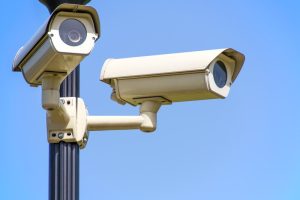In an era marked by technological advancements and an ever-evolving landscape of security threats, the integration of commercial security systems is emerging as the vanguard of business protection. Modern businesses face a myriad of security challenges, from physical breaches to cyber-attacks, making it imperative to adopt a comprehensive, interconnected approach to safeguard their assets, employees, and sensitive data. This article explores the importance of commercial security system integration and its role as the future of business protection.
Holistic Security Solutions:
Traditional security systems, such as surveillance cameras, access control, and intrusion alarms, are no longer sufficient to protect businesses adequately. The modern business environment requires a holistic approach that unifies various security components into a single, coherent system. Integrated security solutions enable real-time monitoring and rapid response, reducing vulnerabilities and improving overall security effectiveness. For instance, an access control system can seamlessly communicate with video surveillance, allowing for immediate visual verification of personnel attempting entering secure areas.

Enhanced Data Analysis:
The future of business protection relies on the ability to harness the power of data. Integrated security systems generate a wealth of data that can be analyzed to identify trends and vulnerabilities. For example, data from access logs, surveillance cameras, and intrusion detection sensors can be processed to detect patterns that may indicate potential security threats. Machine learning and artificial intelligence can further refine this analysis, providing proactive threat detection and predictive insights and read more.
Cybersecurity Integration:
As businesses become increasingly reliant on digital technologies and cloud-based systems, the integration of cybersecurity into commercial security systems is paramount. Cyber-physical security integration ensures that not only are physical assets protected, but digital assets and sensitive data are shielded from cyber threats. The future of business protection involves seamless cooperation between cybersecurity measures firewalls, antivirus software and physical security elements to combat physical and digital threats in tandem.
Scalability and Flexibility:
One of the compelling advantages of integrated security systems is their scalability and flexibility. Businesses can tailor these systems to meet their specific needs and adapt as they grow or face changing security challenges. Whether it is adding more surveillance cameras, incorporating biometric access control, or extending cybersecurity measures, an integrated system allows businesses to remain agile in their security strategies.
Centralized Control and Monitoring:
Commercial security system integration streamlines the control and monitoring of security measures. A centralized command center can oversee all aspects of security, enabling immediate responses to security breaches or anomalies. This centralized control not only enhances the overall security posture but also reduces operational costs by eliminating the need for separate, siloed security management systems.
Improved Emergency Response:
Integration improves emergency response capabilities significantly. In the event of a security breach, an integrated system can automatically trigger alerts, lock down facilities, and provide real-time information to first responders. This automation reduces response times and ensures a more coordinated and effective emergency response.
Cost Efficiency:
While the initial setup of an integrated security system may require an investment, it ultimately leads to cost savings. The improved security and operational efficiency, as well as the reduced risk of breaches and associated costs, make it a financially sound choice for businesses in the long run.



